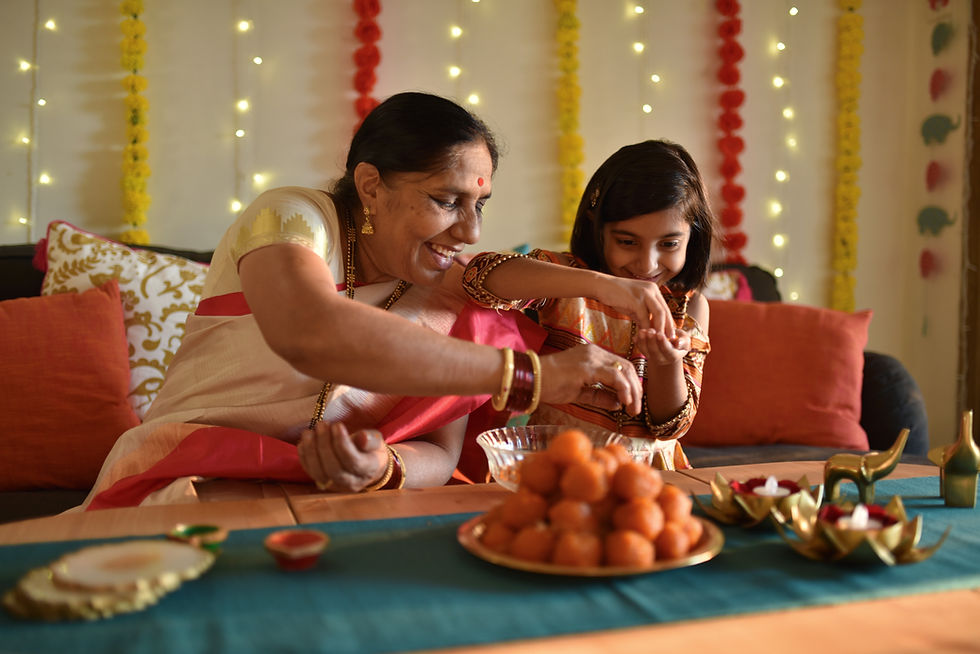Hey Parents! The Importance of Teaching Children about Festivals, Traditions, and Food
- Gauri Shingote
.png/v1/fill/w_320,h_320/file.jpg)
- Nov 10, 2023
- 2 min read

It has become increasingly important in our world today, where cultures are becoming more globalized, to preserve our traditions, festivals, and the culinary delights associated with them. Teaching our children about our rich cultural heritage not only helps them develop a sense of identity and belonging but also fosters an appreciation for diversity and promotes intergenerational bonding. Here we will explore the significance of imparting knowledge about festivals, traditions, and the art of making traditional food to our children.
Cultural Identity and Belonging
By teaching our children about festivals and traditions, we provide them with a strong foundation in their cultural identity. Festivals are an integral part of our heritage, representing our history, values, and beliefs. When children actively participate in these celebrations, they develop a sense of belonging and pride in their cultural roots. Understanding the significance of festivals like Diwali, Christmas, Eid, or Hannukah helps children connect with their community and appreciate the diversity that exists in the world.
Preserving Traditions
Traditions are the threads that connect generations. They are the customs, rituals, and practices passed down from our ancestors. By teaching our children about these traditions, we ensure their preservation for future generations. Whether it's the art of making traditional crafts, performing cultural dances, or following religious ceremonies, passing on these traditions helps children understand their heritage and strengthens family bonds.
Appreciation for Diversity
In a globalized world, it is essential to foster an appreciation for diversity. Teaching children about different festivals and the associated food allows them to explore various cultures and traditions. They learn to respect and embrace differences, promoting tolerance and inclusivity. By understanding the significance of different festivals, children develop empathy and a broader perspective, enabling them to navigate a multicultural society with ease.
Culinary Delights and Family Bonding
Food is an integral part of any festival or tradition. Traditional recipes passed down through generations carry the essence of our culture. By involving children in the process of making traditional food, we teach them valuable culinary skills and also create opportunities for family bonding. Cooking together allows for storytelling, sharing anecdotes, and passing on family recipes, strengthening the emotional connection between generations.
Life Skills and Creativity
Teaching children how to make traditional food instills valuable life skills. They learn about nutrition, food preparation, and the importance of using fresh ingredients. Cooking also encourages creativity, as children can experiment with flavours, presentations, and even modify traditional recipes to suit their own preferences. These skills empower children to become self-sufficient and develop a lifelong love for cooking.

In a rapidly changing world, it is crucial to preserve our cultural heritage by teaching our children about festivals, traditions, and the food associated with them. By doing so, we provide them with a strong sense of identity, foster appreciation for diversity, and strengthen family bonds. Moreover, imparting knowledge about our cultural heritage equips children with valuable life skills and encourages creativity. Let us take pride in our traditions and pass them on to the next generation, ensuring the preservation of our rich cultural tapestry.




Comments